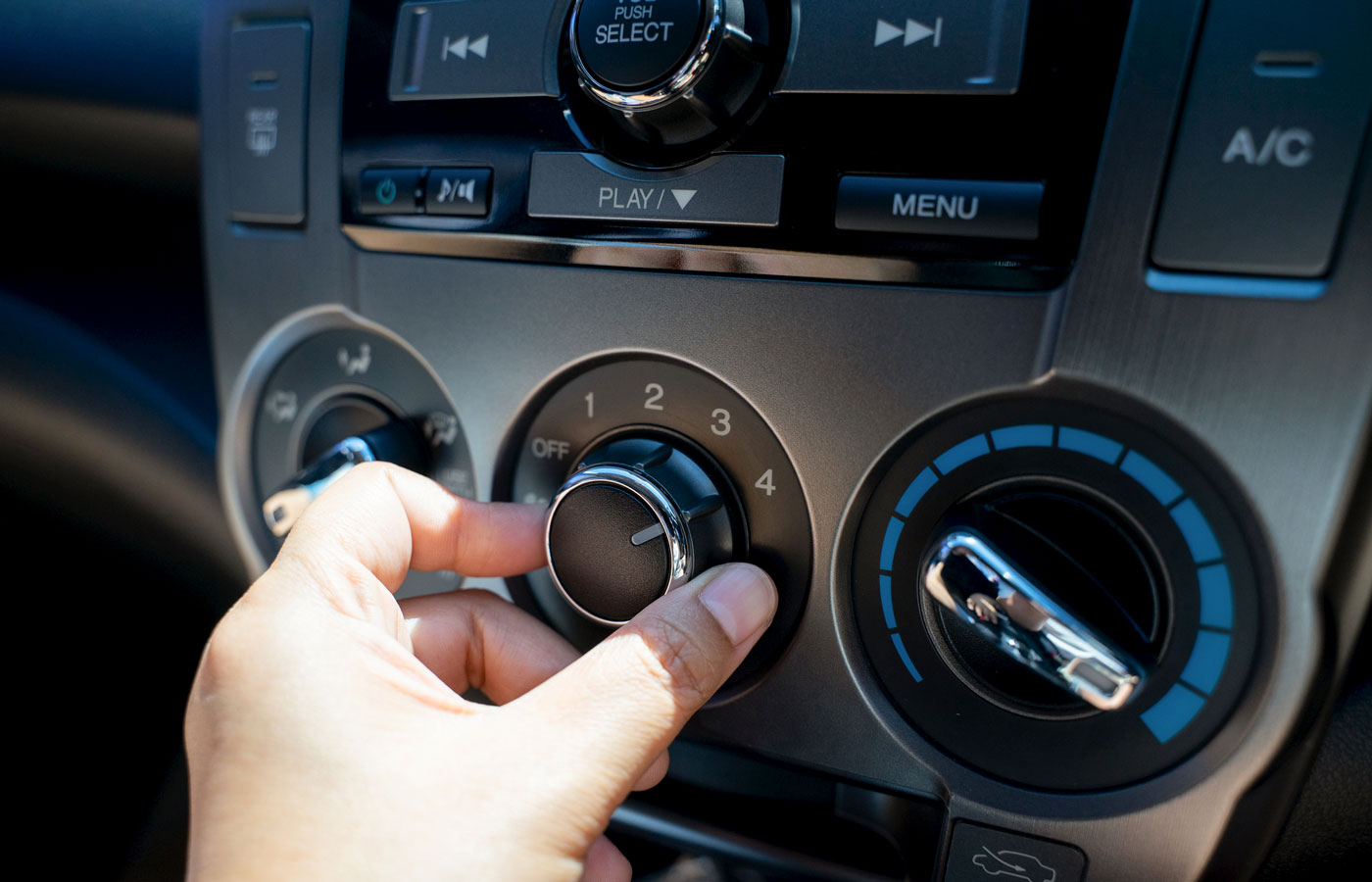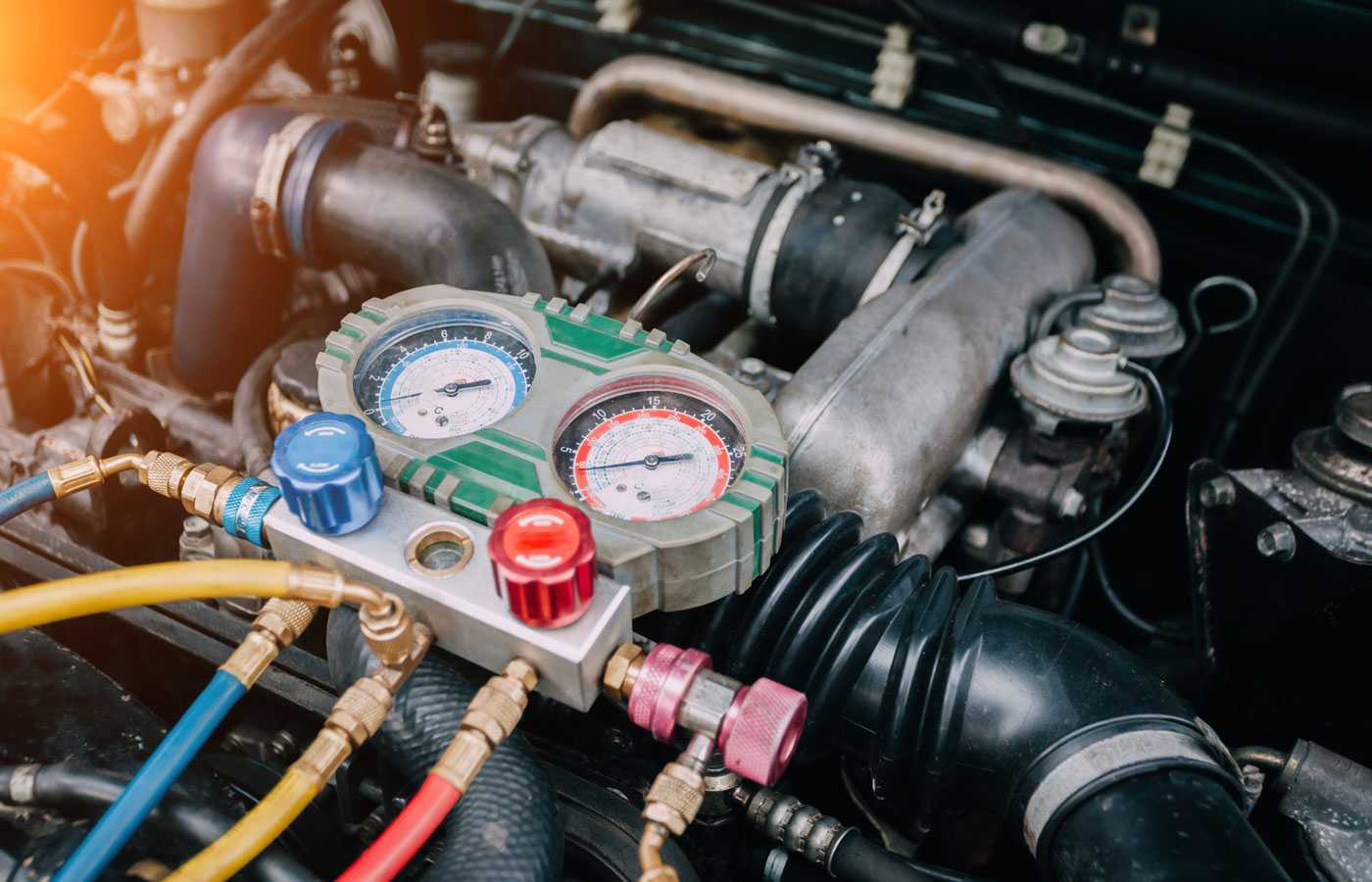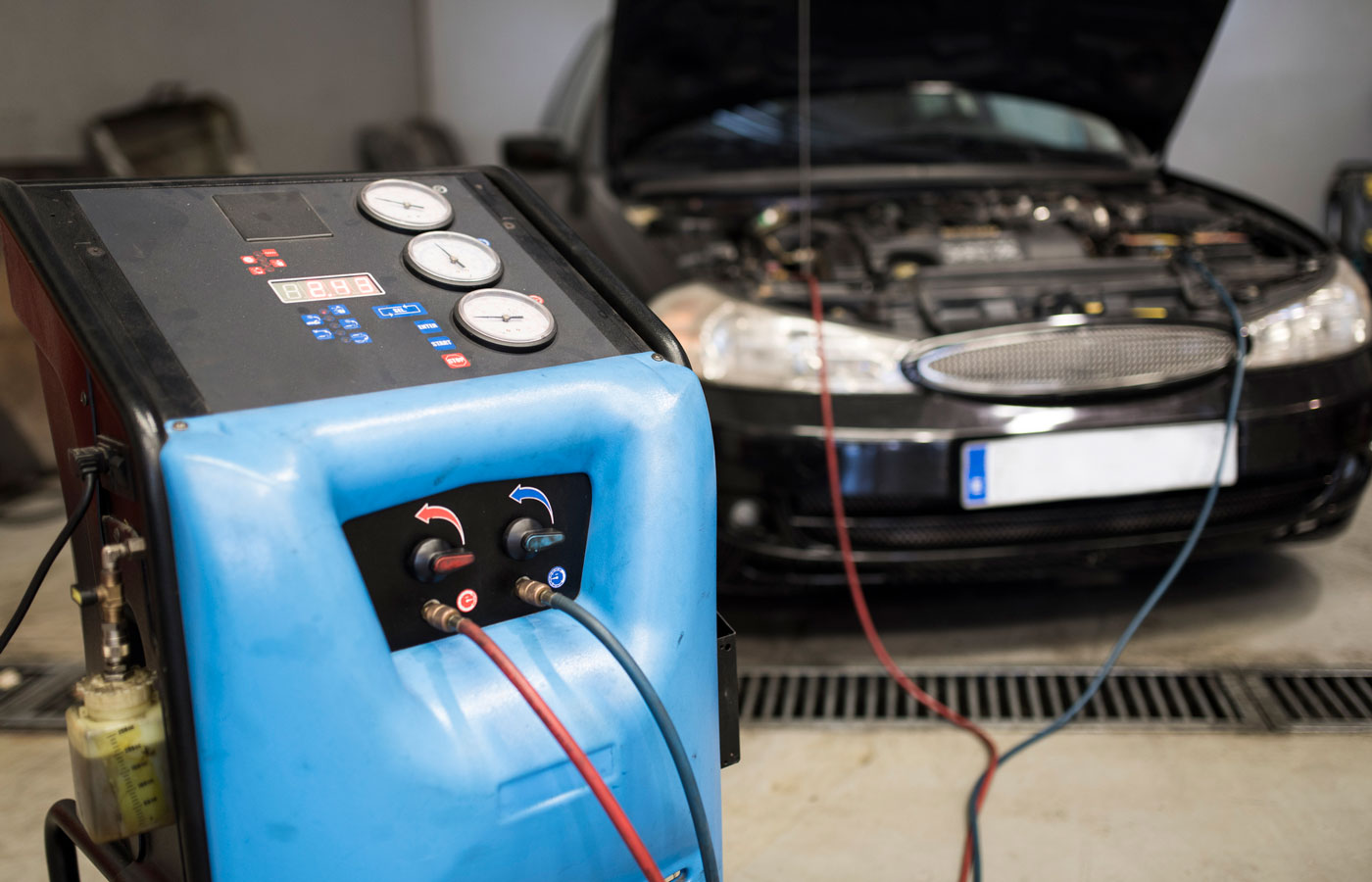How to Know Your Car’s AC Needs Repair
Stay cool this summer with these tips on what to know about AC repair.
Ensuring a car's air conditioning system is in top condition is a must for comfortable rides, especially as the weather heats up, and it's common for air conditioning (AC) units to develop issues over time. So, how do you know if your car’s AC needs repair?
A Brief History of Air Conditioning in Cars
Initially considered a luxury for the rich car owners, Packard introduced the first air conditioning system in automobiles in the late 1930s. While the price point was higher than many could afford during the Depression, interest was enough that in 1953, Chrysler offered the feature in its car line-up. Other auto manufacturers soon followed, and by 1969, more than half of the cars in the United States had air conditioning. Only a few decades later, it became a standard feature in all vehicles.
 Getty
Getty
How Car Air Conditioners Work
Air conditioners cool and dehumidify the air in vehicles to create a comfortable environment. The process begins with the AC's compressor, usually powered by the car's engine. It pressurizes refrigerant gas, which moves to the condenser. The gas releases heat, condensing into a high-pressure liquid. After cooling, the liquid enters the car's dashboard, passing over evaporator coils to cool the air. Cooled air is blown into the car's interior through vents, while heated air is expelled.
 Getty
Getty
How To Know When Car AC Needs Repair
Most car owners don't even think about how their vehicle's AC operates, until it doesn't. Most people think about their oil, tires and engine, but the heating and air-conditioning of your vehicle’s interior is critical for comfort.
So how do you know if your car’s AC needs repair? Here are some signs to look out for:
- Weak Airflow: If the air coming out of your vents is weak, it could indicate a problem with your AC system. This might be due to issues like clogged filters or a failing blower motor.
- Warm Air: One of the most obvious signs your AC needs a repair is when your vents are blowing warm air instead of cold. This could mean low refrigerant levels or a malfunctioning compressor.
- Strange Smells: Unpleasant odors coming from the vents could be a sign of mold or bacteria growth within the system. It's essential to address this quickly not just for comfort, but also for your health.
- Strange Noises: Any unusual noises, such as grinding or squealing, when you turn on the AC could indicate a mechanical issue that needs attention.
- Leaking Fluids: If you notice puddles of water or other fluids under your car after using the AC, there could be a leak in the system. This requires immediate inspection and repair to prevent further damage.
- Frequent Cycling: If your AC system frequently turns on and off, it could be struggling to maintain the desired temperature, indicating a potential problem with the compressor or refrigerant levels.
- Visible Damage: Look under the hood for any visible signs of damage, such as worn-out belts or hoses, which could affect the performance of your AC system.
If you spot these signs, be sure to get your car's AC system checked by a pro. They'll check the blower, drain line, coils, pressures, temps, return and supply lines, refrigerant levels and connections. Addressing issues promptly can prevent more damage and keep you comfortable on the road.
 Getty
Getty
DIY Troubleshooting Tips for Common Car AC Problems
If you prefer to DIY, here are two troubleshooting tips you can use to see if your car’s AC issues can be repaired at home.
- Clean and Replace the Air Filters: Checking the air filter is a simple first step for proper airflow. Locate the cabin air filter then remove it and look it over for any dirt or debris clogging it. Reusable filters should be cleaned, while disposable ones need to be replaced.
- Check Fan Function: Another quick way to troubleshoot is to check the fans and vents. Turn on the vehicle's AC and test the blower fan at various speeds. Check that air flows from all vents, including floor and defrost vents. Weak or inconsistent airflow may indicate blower motor issues, fan speed problems or ductwork obstructions.
Choosing the Right Professional for Car AC Repairs
Finding the right auto technician is important when it is time to diagnose potential car air conditioner repairs. Although an online search for ‘car AC repair near me’, may help, it is important to locate a trusted certified technician who have experience in automotive HVAC. Also, ensure that the auto repair shop you select uses quality auto parts, offers warranties and ask for an estimate on how much it typically costs to fix a car’s AC.
AAA Members can feel confident having their car’s air conditioner repaired at a AAA Car Care Center or by a AAA-Approved Auto Repair Facility. With hundreds of locations throughout the United States, it's easy to find service whenever or wherever you need.
